
The 1990s, as hindsight so clearly shows us, were a stunning time for cinema. There seems to have been no end to the awe-inspiring visuals that fired up the imagination the world over during that wonderfully diverse decade.
Though several films stood out straight away, Taste of Cinema’s tireless search for the most visually exquisite films of 1990s has been no easy charge. The following list presented here offers up films of dazzling depth, stirring symmetry, impeccable production design, gorgeous framing, assured grace, and deep wells of insight and inspiration. Please feel free to add your suggestions in the comments section below, and above all, enjoy!
20. Farewell My Concubine (1993)
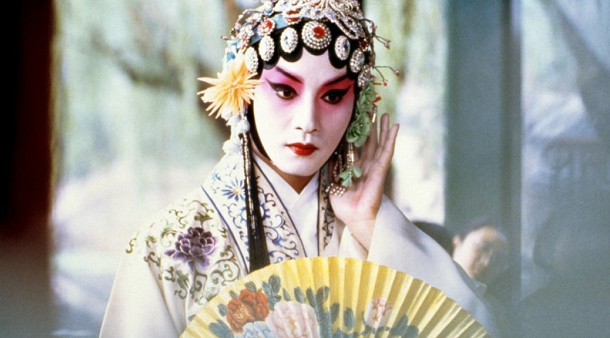
Director Chen Kaige displays his signature flair for lush visuals and epic scope in his historical Chinese romance from 1993, Farewell My Concubine. Adapted from Lillian Lee’s award-winning 1985 novel, “The Hegemon-King Bids Farewell to His Concubine”, and set against the political unrest of the mid-20th century, this Palme d’Or winning film also benefits from a brilliant cast including Leslie Cheung, Gong Li, and Fengyi Zhang.
Opening in 1924 a young Cheng Dieyi (Cheung) starts his training at the Beijing Opera House at the same time as the enchanting Duan Xiaolou (Zhang). Cheng begins to specialize in playing female roles, regularly against Duan’s domineering male leads. While pretending to be in love with Duan onstage, Cheng soon finds himself having actual romantic feelings for his co-star, which are tragically not reciprocated. Over the next several decades, the two men maintain a complicated professional and personal friendship as China undergoes a similar turbulent and profound change.
Farewell My Concubine unfolds with great and rewarding patience, showing affection not just for the characters, but for the theater as well. Often colorful, formal, and achingly maudlin, the cruelness of fate and the madness of the heart is rarely so elegantly told. At times the film is a history lesson, a social critique, a musical, and a very moving love story.
Time Out’s Geoff Andrews said it well when he praised Farewell My Concubine as “…appropriately operatic, Chen’s visually spectacular epic is sumptuous in every respect. Intelligent, enthralling, rhapsodic.”
19. Lessons of Darkness (1992)
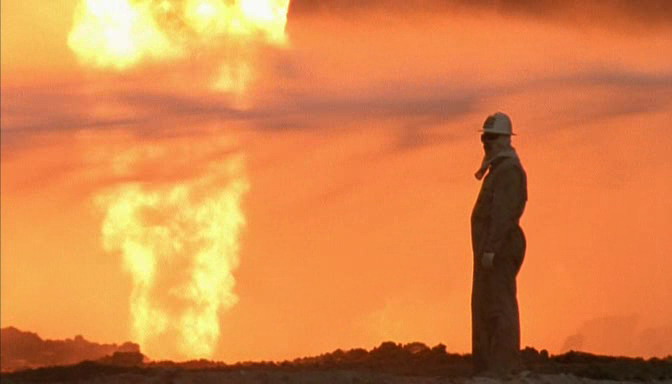
The designs and motifs of Hieronymus Bosch and Goya lay close to the heart of Werner Herzog’s strange, quasi-documentary Lessons of Darkness. Taking on the perspective of an alien observer, Herzog explores the decimated oil fields of post-Gulf War Kuwait as the Iraqi army sets them all ablaze.
The results are extraordinarily gorgeous, and gruesome, with Herzog’s trademark ambiguity as the alien observer decontextualizes war atrocities, a tack which of course was controversial at the time.
“Using his gift for eloquent abstraction,” wrote film critic and scholar Janet Maslin, “[Herzog] creates sobering, obscenely beautiful images of a natural world that has run amok.”
18. Eyes Wide Shut (1999)
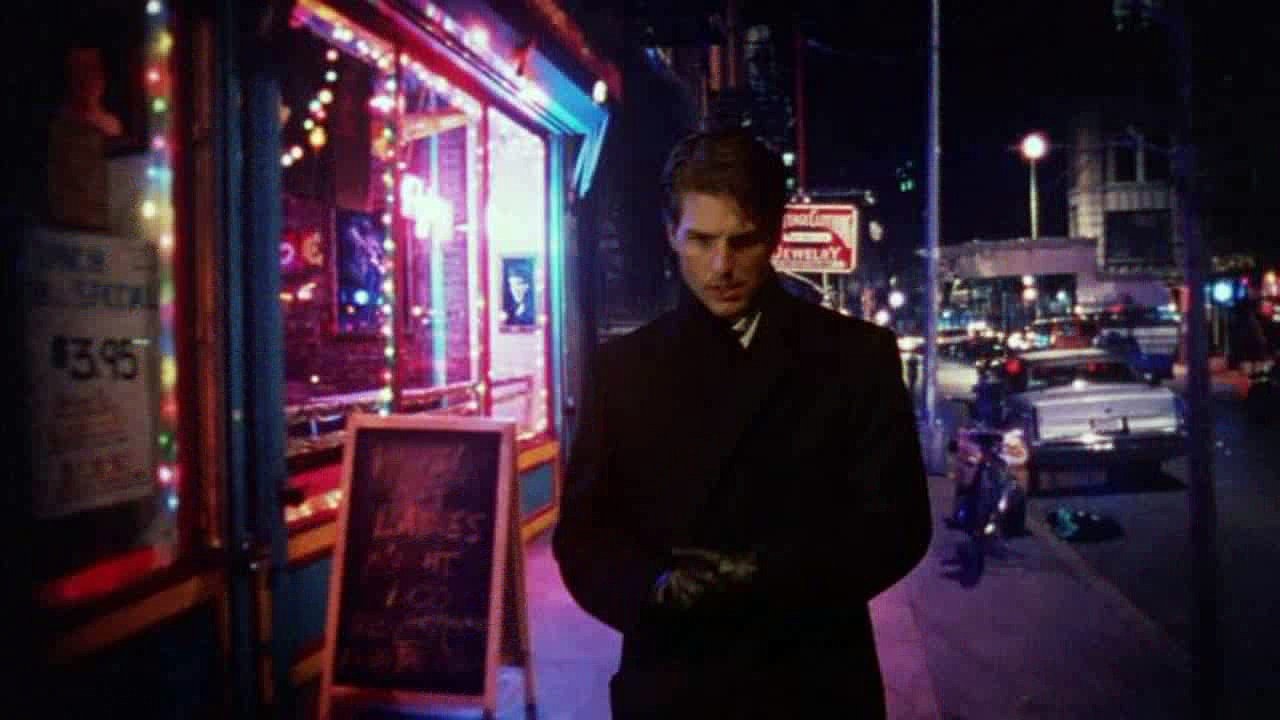
The final film from Stanley Kubrick, Eyes Wide Shut weaves a sexy strange spell straight from the pages of Arthur Schnitzler’s 1926 novella “Traumnovelle” with additional work from Kubrick and co-writer Frederic Raphael.
This carnal nocturnal odyssey is set in New York City as Dr. Bill Harford (Tom Cruise) and his wife Alice (Nicole Kidman) comes into contact with a secret society fond of orgies and creepy Venetian masks. There’s more to it all, of course, and nothing’s what it seems, as well, and while the glacial pace and ambiguity may put some viewers off, there are rich rewards for the patient viewer as well as Kubrick’s trademark visual flourish.
It’s rare that a film create so vivid a dreamlike atmosphere, and that such famed A-listers as Cruise and Kidman present themselves so vulnerably, so raw, and so ribald, as if the dissolving marriage of their characters’ echoed their own. An art film, most assuredly, but also an elegantly captured nightmare of a marriage on the brink of destruction.
17. Underground (1995)
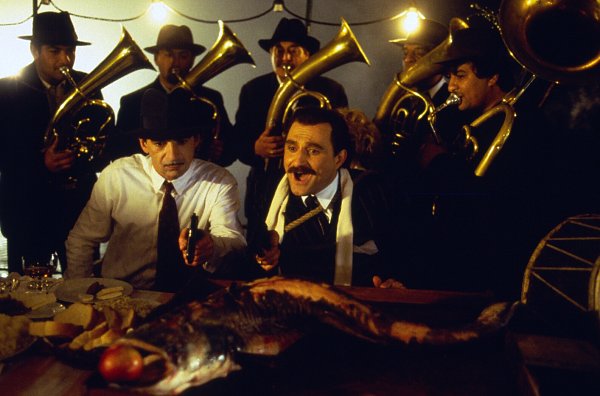
“If Fellin had shot a war movie,” suggested Variety’s Deborah Young, “it might resemble Underground.”
Directed by Emir Kusturica, who also co-wrote the screenplay (along with Dušan Kovačević), Underground is the epic tale of two friends, black marketeers Marko (Miki Manojlovic) and Blacky (Lazar Ristovski), commencing at the start of World War II and following them to the beginning of the Yugoslav Civil War of the 1990s (with a long stay in the titular below-ground shelter in between).
Underground won the Palme d’Or at the 1995 Cannes Film Festival, the film enjoyed something of a cult following (it’s epic runtime of 5 hours, 20 minutes prevented it from being a mainstream breakthrough), rarely is the mise-en-scène merger to comedy as triumphant as it is here. And while the visuals rightfully astound, a massive part of what makes Underground such a beaut has got to be the orchestral score from Goran Bregović.
Don’t miss it, and track down the less daunting 167-minute cut if the full version is too intimidating.
16. Goodbye South, Goodbye (1996)
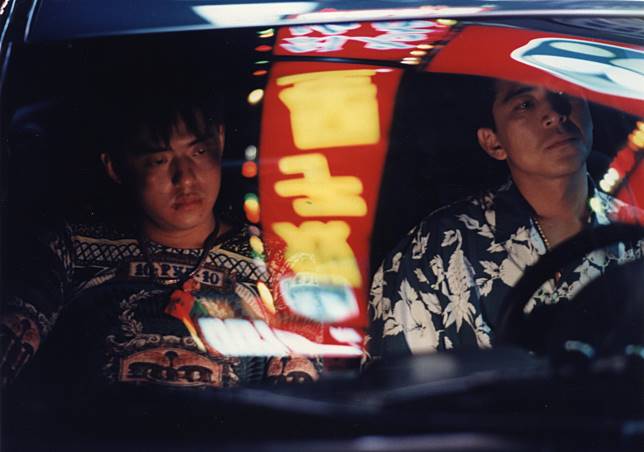
The first of two films on this list from slow cinema superstar director Hou Hsiao-hsien, regularly regarded as one of the world’s best directors, Goodbye South, Goodbye is an unhurried but deeply penetrating film.
Following the lives of two generations of Taipei hoodlums, sad themes of suicide, failed dealings, and violent retribution dogear this film, chosen by Cahiers du Cinéma as one of the best films of the 1990s.
Languid and rigorous, awash with extended takes, a feverish color palette, and impressively exquisite lighting, the pull of time and the transformation from one generation to the next is given a thorough examination herein, that would not only predict Hou’s 2001 tour de force, Millennium Mambo, but also reflect perhaps his biggest source of inspiration, that of his idol Yasujirō Ozu.
Goodbye South, Goodbye is a great introduction to Hou’s work, and a litmus test as to whether or not one can handle his alternately agonizing/artful approach. Gorgeous.
15. All About My Mother (1999)
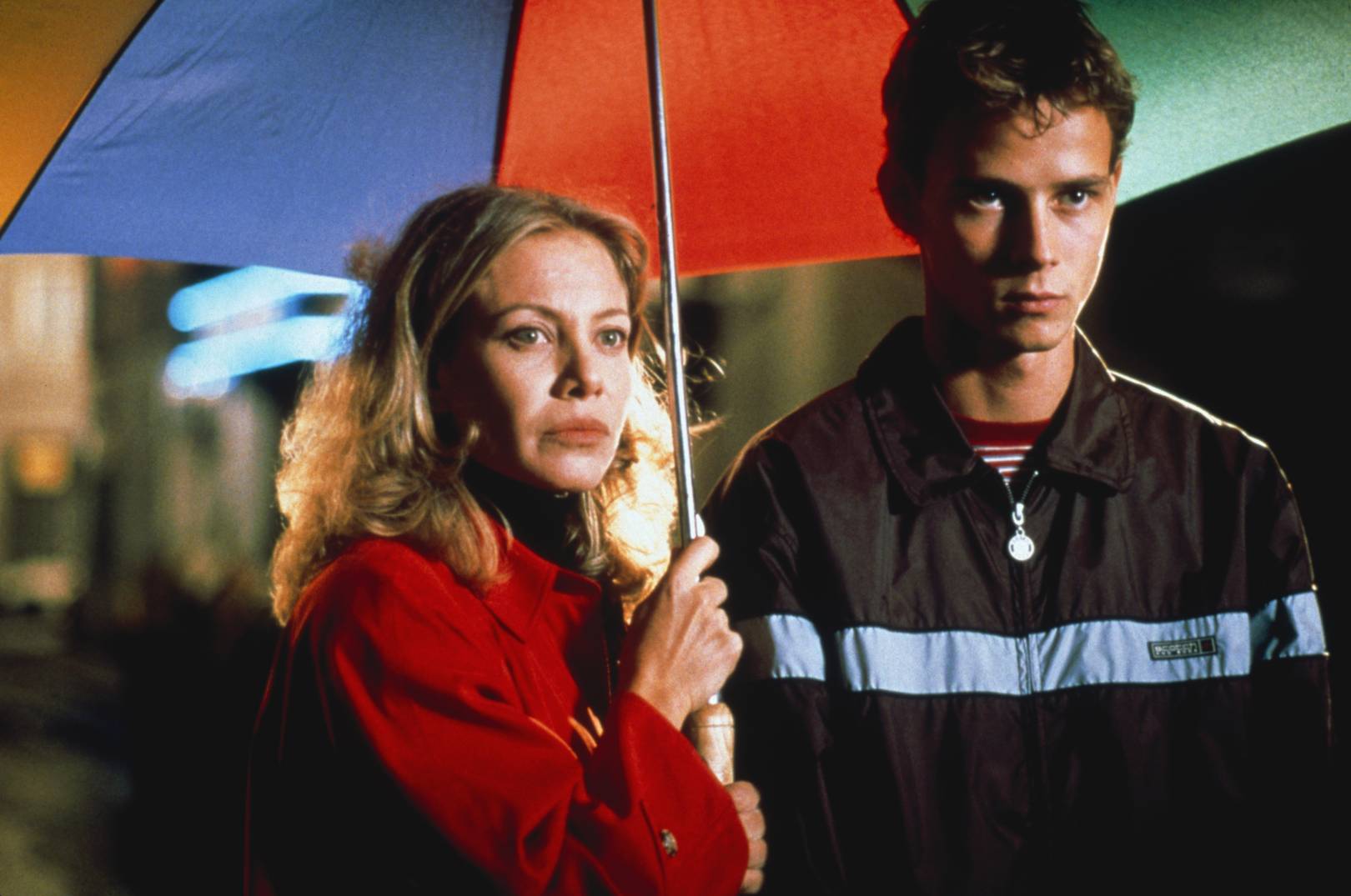
A lovely work, brimming with life, writer/director Pedro Almodóvar brilliantly balances Sirkian melodramatics with complex social issues such as AIDS, existentialism, faith, gender fluidity, and homosexuality in one of the most gorgeously realized films that the 90s ever manufactured.
New York Times critic Janet Maslin, considering the film to be Almodóvar’s “best film by far”, was also taken by how the director artfully “presents this womanly melodrama with an empathy to recall George Cukor’s and an eye-dampening intensity to out-Sirk Douglas Sirk.”
Revisiting the plot origins of his earlier film The Flower of My Secret (1995), Almodóvar was also inspired by an article he read “about a bunch of nuns who lived in a house and worked with transvestites and prostitutes and drug addicts, trying to help them to establish new lives for themselves.”
While Almodóvar’s film pays homage to the aforementioned Sirk, there’s also pastiches paid to writers Truman Capote, Federico García Lorca, Tennessee Williams, and cinematic legend Alfred Hitchcock. Imbuing the movie with sime soap opera style melodrama and the colorful splash pages of comic books, this sexy romp is elaborately assembled, dynamically photographed, and edgy all the way. It’s almost as if Almodóvar set out to reinvent the women’s movies of yesterday with an ironic, modernistic glow. A delight.